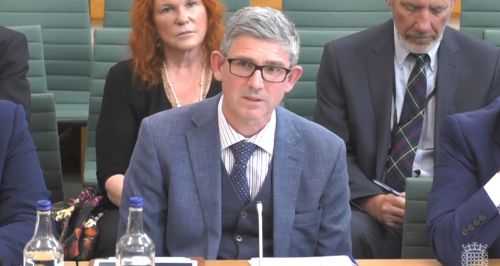Regional venture capital needs urgent extension of tax relief schemes

Regional Venture capital funds need an urgent extension of the tax relief schemes which encourage investors to back start-ups and small firms.
Mercia’s Dr Mark Payton, who gave evidence to the Treasury Select Committee on venture capital said the government’s lack of a clear plan is “damaging given that investment relies on the certainty of such support”.
The further call for an industrial strategy and a coherent plan to extend venture funding beyond London and the South East backs the evidence-based Invest North report released in parliament last week by TheBusinessDesk.com.
The Enterprise Investment Scheme (EIS), Seed Enterprise Investment Scheme (SEIS) and Venture Capital Trusts (VCTs) helped to raise over £2.7bn last year but contain a ‘sunset clause’ which means they end in April 2025. The government has confirmed that the schemes will be extended, however has yet to clarify when to.
Mercia’s founder Dr Payton warned that the government needed to ensure the continuity of the both the EIS and VCTs to prevent any uncertainty: “With over £2.7bn raised last year, the loss of this financing would be acutely felt by regional SMEs in particular. Ideally, we ask that the government removes the sunset clause and make these schemes permanent.”
The Select Committee also considered ways to alleviate the regional disparity which means the bulk of venture capital goes to companies in the capital. Its report recommends the Treasury considers relaxing some of the schemes’ restrictions, including the age limit on companies.
The report cites Dr Payton’s comments that the age limit was ‘disproportionately punishing’ for regional businesses because they tended to take longer to get established due to lower resources and thus slip outside of the current artificial seven to ten year age rules.
Mercia invests a majority of its funds outside of London. Dr Payton said that most venture firms and capital providers were based in the South East and efficient close-knit networks mean London-based companies had more chance of connecting with investors. He also argued that regional businesses also tended to bootstrap for longer, with the resulting lack of investment creating further gaps in wage and job growth.
However, he said research suggests that private investors are more likely to invest in a deal outside their region if government is involved. He praised the work of the British Business Bank (BBB), which manages regional funds such as the Northern Powerhouse Investment Fund (NPIF) and Midlands Engine Investment Fund (MEIF) and deploys them through local fund managers.
Dr Payton said: “Investment from the British Business Bank’s regional funds, combined with private investment from EIS and VCT funds, has been transformational for regional businesses. It has also helped to attract other capital into the regions, and build ‘support communities’ of advisers, non-executive directors and mentors to create a self-sustaining environment for business growth and highly skilled jobs.
“While regional disparities continue, there are increasing ‘positives’ in the regions. Mercia believes existing tax relief schemes are critical to the levelling-up agenda. We want to see them continued and optimised rather withdrawn and replaced with new initiatives.”







